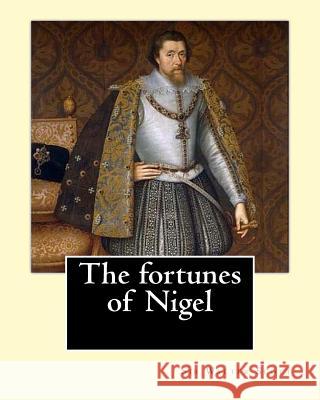The fortunes of Nigel. By: Sir Walter Scott: Novel » książka
The fortunes of Nigel. By: Sir Walter Scott: Novel
ISBN-13: 9781542641487 / Angielski / Miękka / 2017 / 290 str.
The fortunes of Nigel. By: Sir Walter Scott: Novel
ISBN-13: 9781542641487 / Angielski / Miękka / 2017 / 290 str.
(netto: 70,12 VAT: 5%)
Najniższa cena z 30 dni: 69,35 zł
ok. 13-18 dni roboczych.
Darmowa dostawa!
Sir Walter Scott, 1st Baronet, FRSE (15 August 1771 - 21 September 1832) was a Scottish historical novelist, playwright and poet with many contemporary readers in Europe, Australia, and North America. Scott's novels and poetry are still read, and many of his works remain classics of both English-language literature and of Scottish literature. Famous titles include Ivanhoe, Rob Roy, Old Mortality, The Lady of the Lake, Waverley, The Heart of Midlothian and The Bride of Lammermoor. Although primarily remembered for his extensive literary works and his political engagement, Scott was an advocate, judge and legal administrator by profession, and throughout his career combined his writing and editing work with his daily occupation as Clerk of Session and Sheriff-Depute of Selkirkshire. A prominent member of the Tory establishment in Edinburgh, Scott was an active member of the Highland Society and served a long term as President of the Royal Society of Edinburgh (1820-32)......... James VI and I (19 June 1566 - 27 March 1625) was King of Scotland as James VI from 24 July 1567 and King of England and Ireland as James I from the union of the Scottish and English crowns on 24 March 1603 until his death. The kingdoms of Scotland and England were individual sovereign states, with their own parliaments, judiciary, and laws, though both were ruled by James in personal union. James was the son of Mary, Queen of Scots, and a great-great-grandson of Henry VII, King of England and Lord of Ireland, positioning him to eventually accede to all three thrones. James succeeded to the Scottish throne at the age of thirteen months, after his mother Mary was compelled to abdicate in his favour. Four different regents governed during his minority, which ended officially in 1578, though he did not gain full control of his government until 1583. In 1603, he succeeded the last Tudor monarch of England and Ireland, Elizabeth I, who died without issue. a] He continued to reign in all three kingdoms for 22 years, a period known as the Jacobean era after him, until his death in 1625 at the age of 58. After the Union of the Crowns, he based himself in England (the largest of the three realms) from 1603, only returning to Scotland once in 1617, and styled himself "King of Great Britain and Ireland." b] He was a major advocate of a single parliament for England and Scotland. In his reign, the Plantation of Ulster and British colonization of the Americas began. At 57 years and 246 days, James's reign in Scotland was longer than those of any of his predecessors. He achieved most of his aims in Scotland but faced great difficulties in England, including the Gunpowder Plot in 1605 and repeated conflicts with the English Parliament. Under James, the "Golden Age" of Elizabethan literature and drama continued, with writers such as William Shakespeare, John Donne, Ben Jonson, and Sir Francis Bacon contributing to a flourishing literary culture. 1] James himself was a talented scholar, the author of works such as Daemonologie (1597), The True Law of Free Monarchies (1598), and Basilikon Doron (1599). He sponsored the translation of the Bible that would later be named after him: the Authorised King James Version. c] Sir Anthony Weldon claimed that James had been termed "the wisest fool in Christendom," an epithet associated with his character ever since. Since the latter half of the 20th century, historians have tended to revise James's reputation and treat him as a serious and thoughtful monarch.











